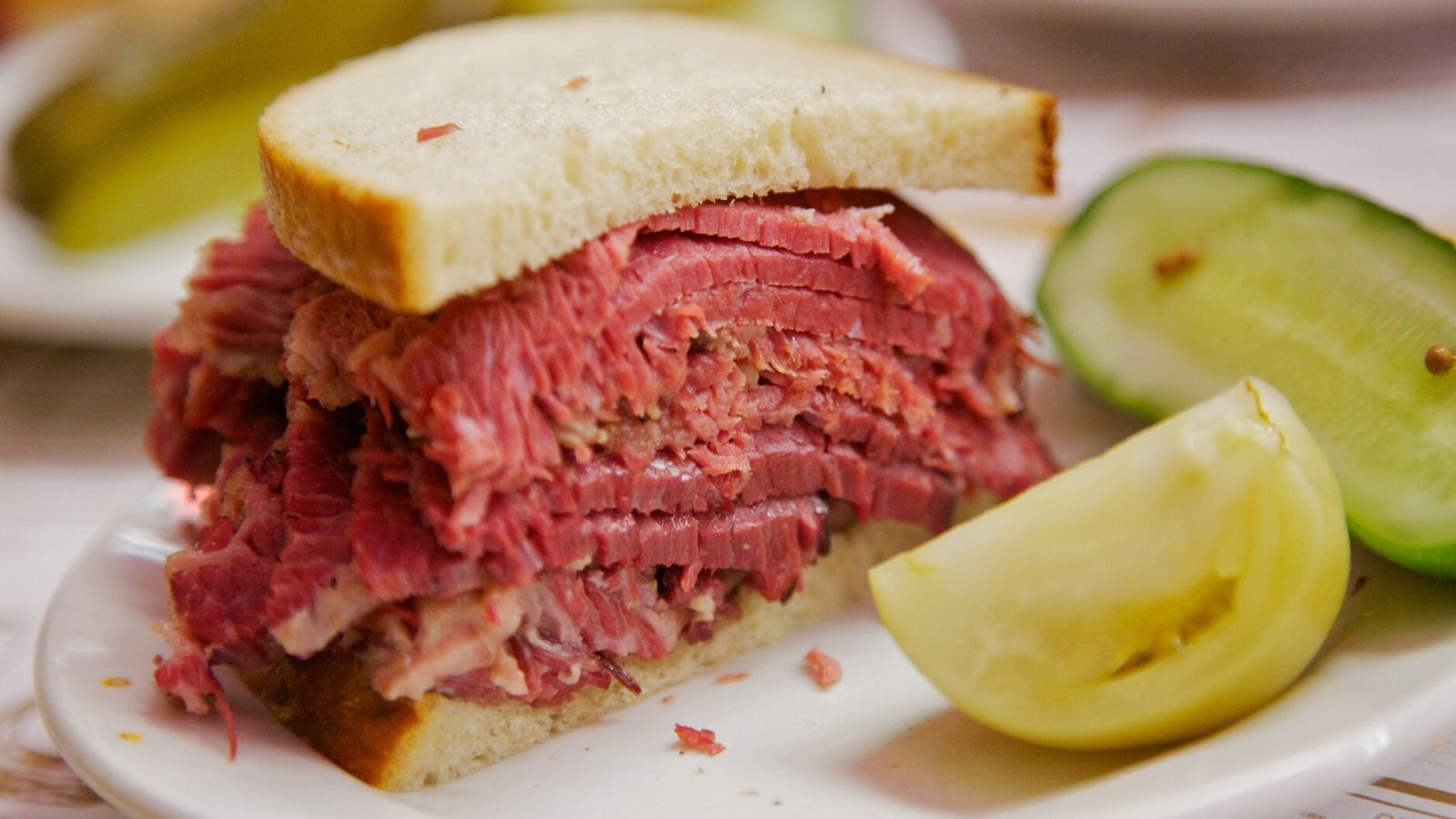It’s no secret that restaurants are struggling to stay open and remain profitable right now due to necessary business restrictions across the country and around the world in the face of the coronavirus pandemic. Jewish delis are far from immune at this time. But Jewish delis are an integral part of the Jewish American experience, and so their challenges tug a little harder at our souls.
No two Jewish delis are alike these days — there are delis in every corner of the United States — and so each one is handling this crisis in their own way. Some decided to shut their doors early, taking the utmost precautions around health and safety. Others have shifted their business to takeout, delivery, and online orders. We don’t know what the restaurant industry, including Jewish delis, will look like at the end of this experience (because we also don’t know when this experience will end), but we’re rooting for everyone right now.
Here’s how four different delis from across the country have approached their business during the pandemic.
These interviews have been lightly edited and condensed for clarity.
The Nosher celebrates the traditions and recipes that have brought Jews together for centuries. Donate today to keep The Nosher's stories and recipes accessible to all.
Mamaleh’s Deli, Boston
Owner: Rachel Sundet. Mamaleh’s opened during the summer of 2016.
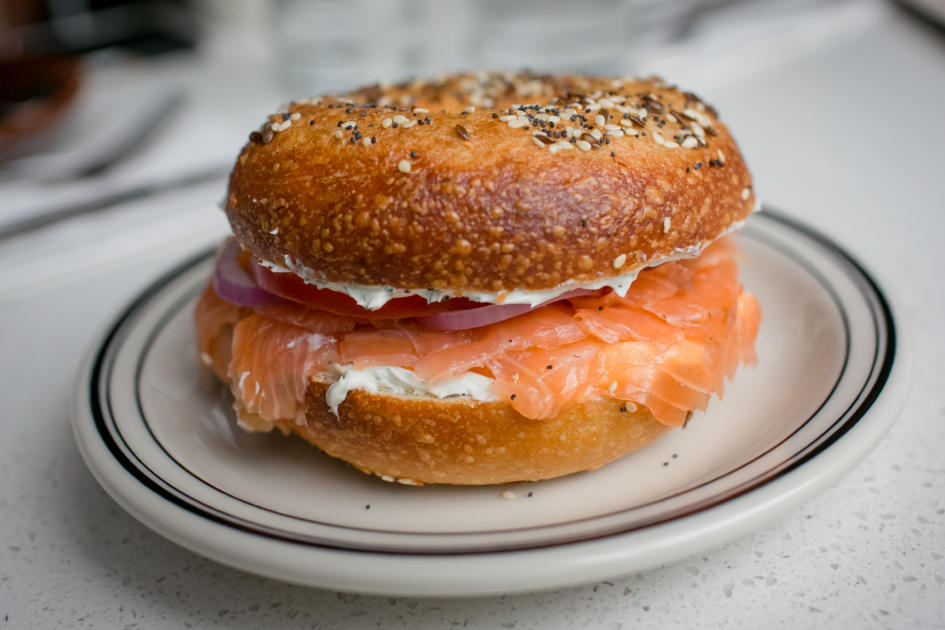
We are closed currently — our last service was on March 15, 2020, and we’ve basically been in a holding pattern since then, feeling it necessary to prioritize the health and safety of our employees and patrons. Our business was already on a somewhat tenuous footing in the sense of trying to balance high labor costs with upper limits on what we could reasonably charge for our food. Classic deli fare is incredibly labor-intensive, making many things from scratch that take time and care, and our liquor sales, which often allow restaurants to offset those labor costs, have always been low. It leaves us with a challenging equation.
As we think about how to reopen, our model will undoubtedly need to shift. In the past, we have relied on a high volume of people coming through the restaurant, especially on the weekends during brunch, and notoriously were in the position of trying to fit as many people as possible at each table. At this point, we’re unsure about when and how we’ll be able to safely have guests dine in at all, and when they can, the volume will have to be greatly reduced to ensure social distancing space.
We furloughed just about everyone on staff — it feels awful. We’ve been following up with our employees with resources about unemployment and food assistance to make sure people have what they need. Additionally, we started fundraising for our employees in need and have been giving out financial and grocery aid to those people and their families. We’re trying our best to stay connected and help as much as we’re able, but we’re just not able to do as much for our staff as we would want to at this point in time.
Manny’s Cafeteria & Delicatessen, Chicago
Owner: Dan Raskin. Manny’s has been operating in downtown Chicago since 1942.
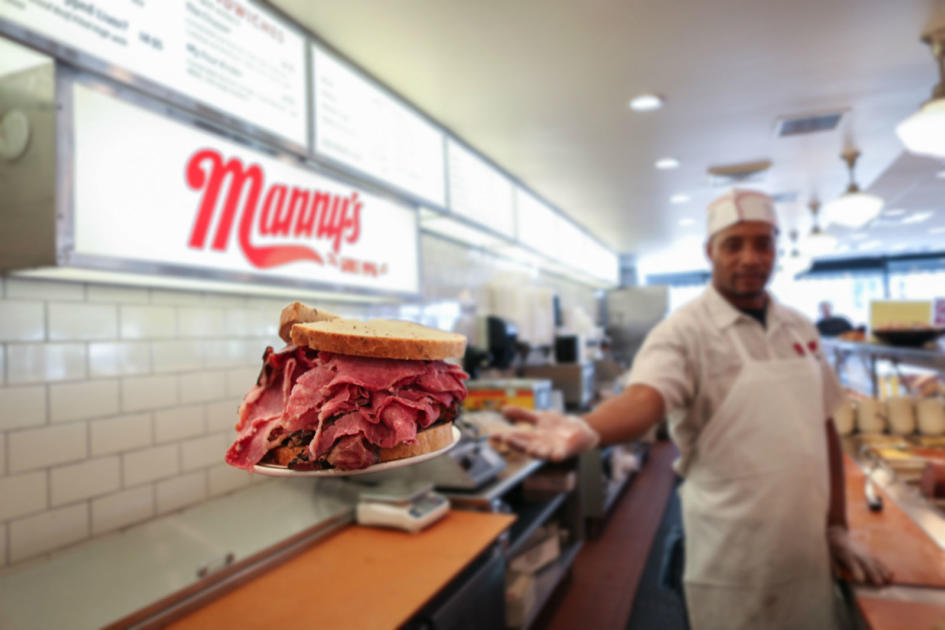
We never closed our operation, even temporarily, though we did revise our hours to open a little later and close a little earlier. Obviously, with no one working downtown, our business is down nearly 70 percent. A majority of our business is the lunchtime crowd.
So to try and address this, we have pivoted our business to provide delivery out to the Chicago suburbs, where are usual clientele live. We are doing deliveries every day except Monday, and we sell out of these orders every single day. We are doing contactless drops in people’s trunks at various meeting points. It’s required creativity and flexibility. We are offering a smaller menu, mostly our most popular items. But as time goes on we hope to add back more items based on customer demand. People are mostly ordering corned beef and pastrami sandwiches, and a lot of bagels, lox, and deli meats by the pound.
Many of the Jewish delis in the Chicago area have closed, so there’s actually been a big demand for Jewish comfort food, especially during Passover. We have been fortunate to work with Jewish organizations in the suburbs to coordinate getting food out to people. For example, in Oak Park, we are working with the rabbi of one synagogue to use their parking lot as a pick-up location. We are also doing weekend “lox boxes” as a synagogue fundraiser, and of course, people love the chance to have Manny’s goods also.
Right now everything is keeping me up at night, including the knowledge that anything can change at any moment. Sanitation-wise, we are doing everything possible to keep everyone safe. My #1 concern is safety of staff and customers. None of our employees have gotten sick yet. I don’t want to put anyone’s life at risk. And thankfully we haven’t laid off any of our staff, but we have given everyone reduced hours in an attempt to try and keep everyone working. Of course, the financial concerns keep me up at night. When you are doing that much less business, but your fixed costs are the same, it’s really stressful. We didn’t get a small business loan during the first round, but we are hoping to get it in the next round. I am not going to give up and close, but it’s hard when we are bringing in so much less business than before.
Beetroot Market and Deli, Portland
Owner: Sonya Sanford. Beetroot Market and Deli first opened in 2019.
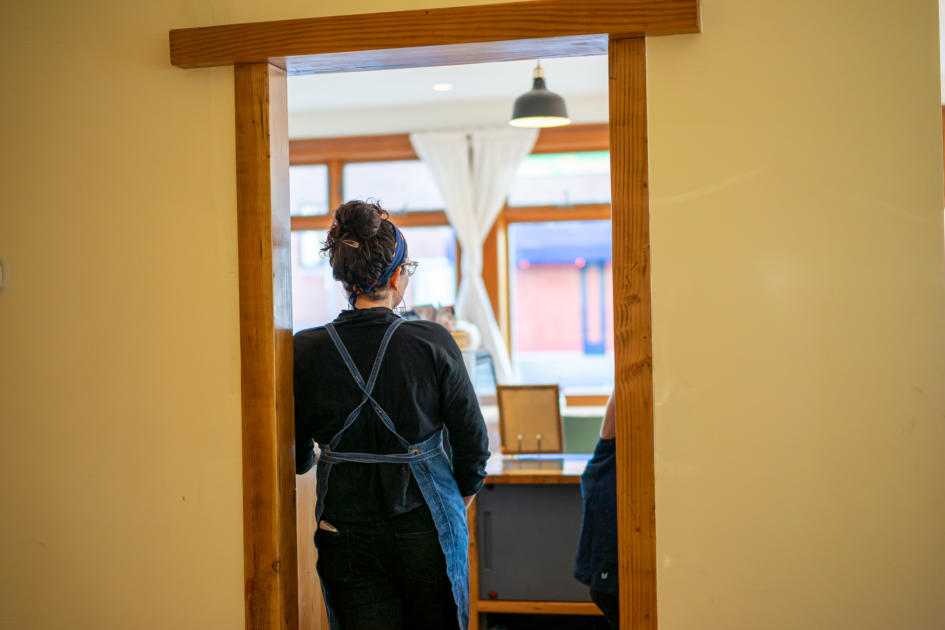
We actually made the decision to close our dine-in eating at Beetroot a few days before the mandate was announced in Oregon. We were watching what was going on in Seattle and Washington state and I didn’t feel it was fair to risk the health and well-being of my employees or customers. That first Friday when we decided to do only takeout, it was obvious to us right away that the sales from takeout alone were not going to be sustainable. I had to quickly make the decision to either order lots of product and risk losing that money entirely if we were forced to shut down, or wind down business and close temporarily. So I decided we would self-quarantine for a few weeks, and then assess.
I’ve been managing the business on my own, and there are just so many logistics. It’s exhausting and stressful. We have experimented with takeout options — a soup and wine night, some Passover catering — and we are going to start to offer Shabbat dinner and bake-from-home cookie dough. But these one-off offerings aren’t a profitable enterprise. We make a few hundred dollars to cover the costs of utilities.
Even with a re-opening, we know the world is going to look different and people aren’t going to be rushing out to restaurants. There will be new rules around eating-in and safety precautions, so I am thinking about what business we can realistically have moving forward, in the short term and over the next six months.
Part of the challenge is that I am just one person, and I only opened this business six months ago. The first year is always the hardest for new restaurants. Other delis have lived through crises before, but we were still getting our footing as a new deli when this hit.
Kenny and Ziggy’s New York Delicatessen, Houston
Owner: Ziggy Gruber. Kenny and Ziggy’s has been open since 1999.
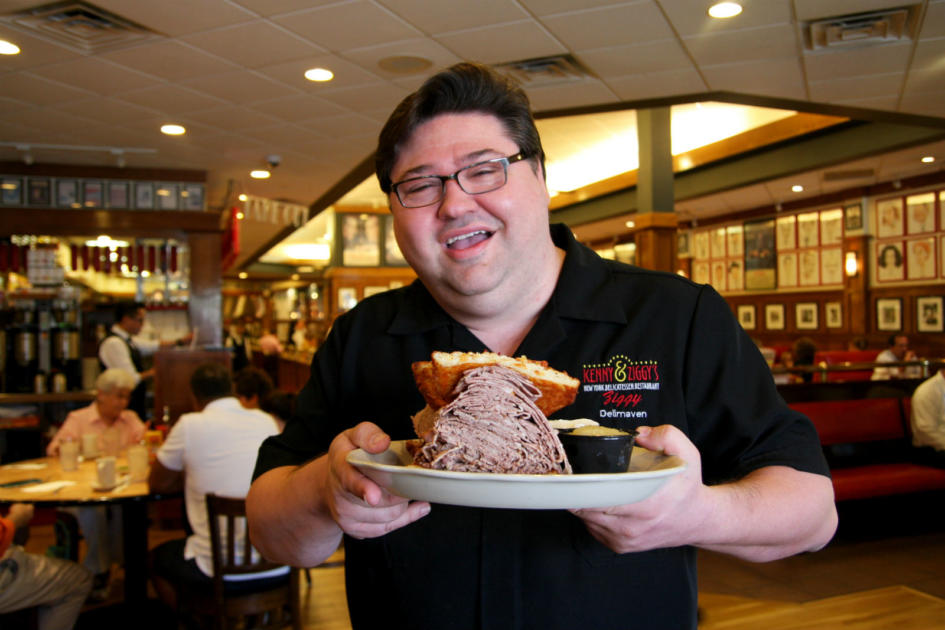
We are navigating this thing. It’s a daunting experience, really something out of a Ray Bradbury book. The sad part is that I had to furlough all my front-of-the-house staff, but I stay in touch with them and, of course, I am feeding them. Most of my people have been with me for 20 years. But my other staff is still working; I have everyone working at least one or two shifts so they still have some salary coming in.
We have been doing curbside pick-up, delivery, and orders from Goldbelly. It’s clear people are craving some good, comfort Yiddishe food. We really have a rhythm going now. Here in Houston, the community at large is very supportive. Our core Jewish community has been phenomenal. — ordering three or four times a week, placing big orders. It really helps.
People have even been driving all the way from Austin, San Antonio, and Dallas just to get out of the house, come to the deli, and pick up some of their favorite food. We pack it up in boxes with gel packs so it will stay cool when they are back.
We have gotten creative, doing a weekend brunch kit with bagels, lox, and cream cheese, or blintzes, and make your own mimosas. We are also giving people different Shabbat options: chicken, brisket, or stuffed cabbage with side dishes like kugel and kasha varnishkes. I am selling so much matzah ball soup I can’t believe it. And remember, it’s like 80 or 90 degrees down here. I am selling a lot of old-school traditional food, because when something like this occurs, people revert back to some sort of comfort from their past. I am also selling an unusual amount of kishke and lot of desserts.
I keep reminding my customers, Zoom shows you 20 pounds lighter, so order what you want. They respond: Okay, I’ll take a large éclair.
I am worried about the other Jewish delis who likely won’t be able to do enough takeout to sustain them.
